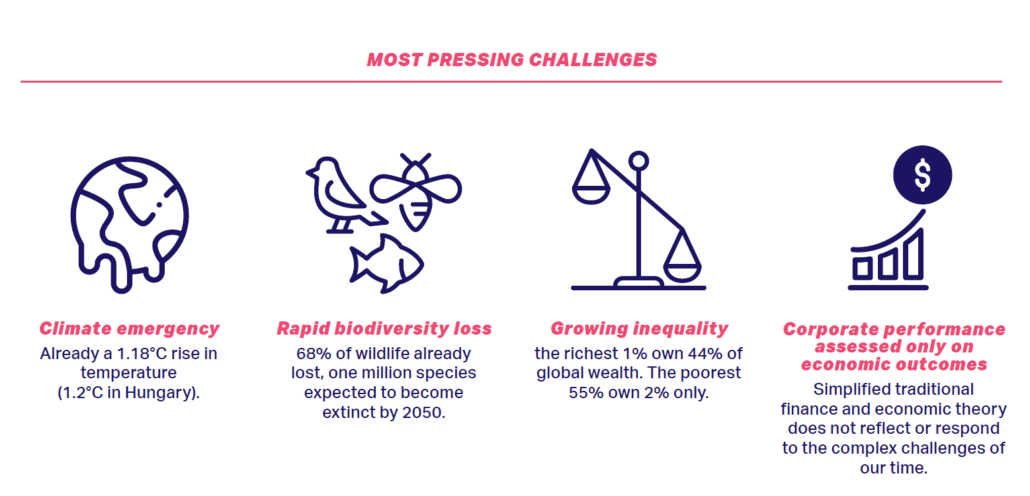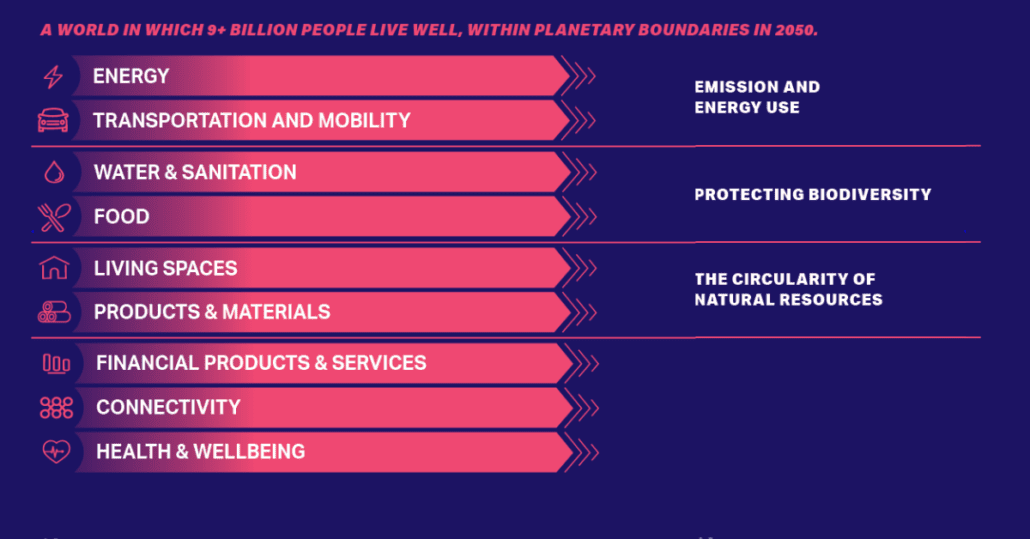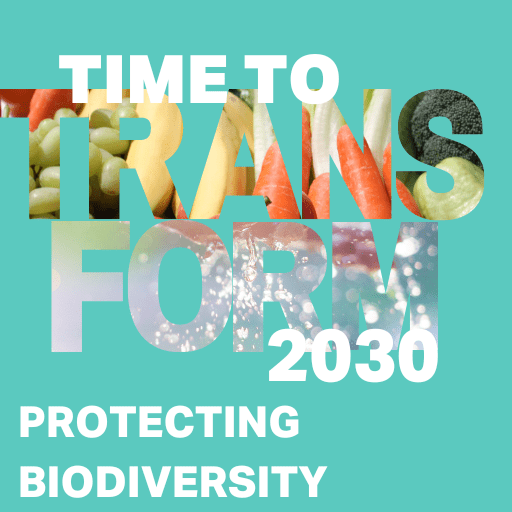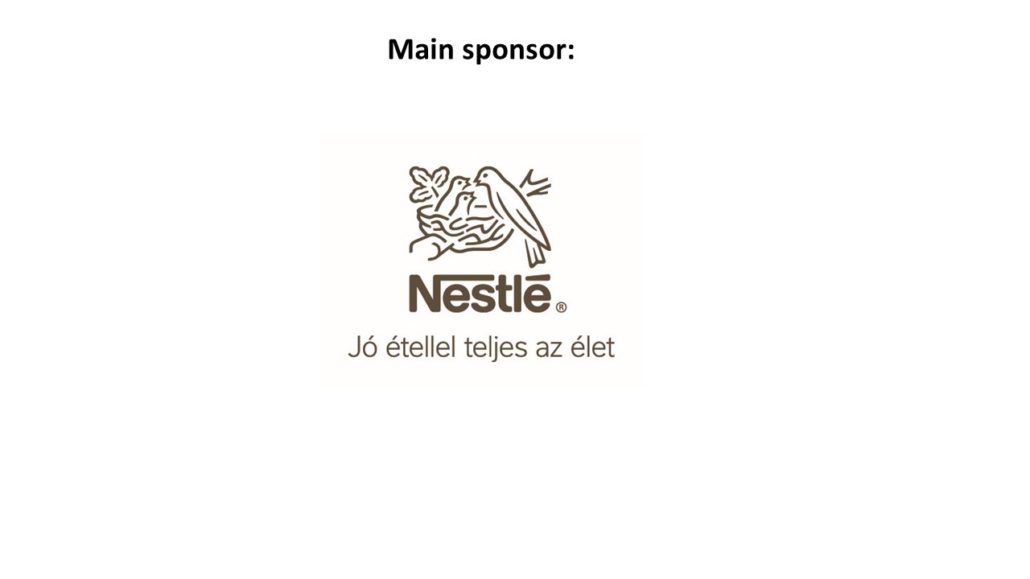Time to Transform 2030
The time has come for the BCSDH and its member companies to move to a higher level and take the lead in action.
Our focus is on the implementation of the Sustainable Development Goals (SDGs) set by the UN until 2030, which is in line with the renewed VISION 2050 goals and paths.
The world’s most pressing challenges include climate emergency, rapid biodiversity loss, dramatically growing social inequality, and the focus on assessing corporate performance from an economic perspective only. We are running out of time, and these four areas require immediate measures, action, and systemic change alongside commitment at the highest level.
The Time to Transform 2030 program aims to achieve real systemic transformation through concrete activities while supporting companies through collaboration in the very limited timeframe that is available
The first 10-year period of the landmark report entitled VISION 2050 was envisaged as a turbulent decade when we were required to lay the foundations for a period of fundamental change in the way we lived our lives. In Action 2020 Hungary, more than 50 member companies committed themselves to targets and a total of 15 recommendations on climate, water, sustainable lifestyles, sustainable employment, and food.
Now, a decade after creating the document and vision, we are entering an invigorating period designed to inspire concrete action. The systemic transformations required for achieving the objectives of the Vision 2050 report have not been accomplished. Moreover, the pace and scale of change is less than expected. Transformation will require unprecedented leadership and the recognition that change can only be achieved if business understands its role as part of a larger system.
Only through these achievements will it be possible to achieve the UN Sustainable Development Goals and targets of Europe’s Fit for 55 package by 2030, and to have at least a chance of meeting the 1.5°C climate target.
Achieving the 2050 vision the World Council has identified nine potential transformation pathways, with a particular focus on areas where business is uniquely placed to make a real contribution to the common goal.
WBCSD recognises that the nine pathways are closely interlinked and none of them can be isolated from the others; they are in constant interaction with one another. Certain transformation pathways may be relevant to different degrees in individual sectors; it is crucial that companies look at them holistically.
In Hungary in 2022 we identified three major priority areas with our experts that cover multiple pathways and are currently in a critical situation. In these areas we can help achieve real transformation by engaging our member companies – indeed, work has already started in these areas through the Action 2020 program.

















